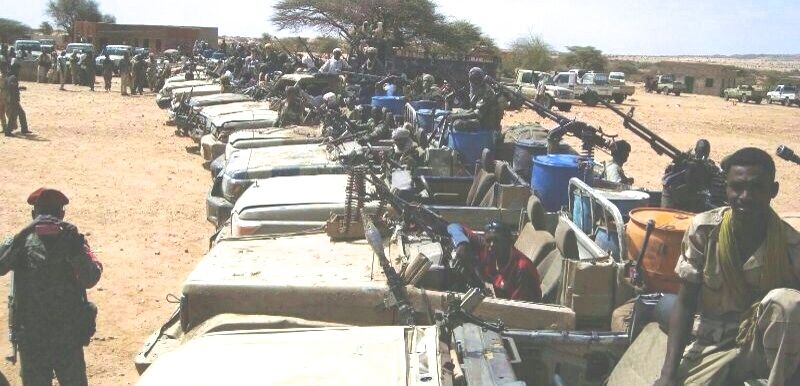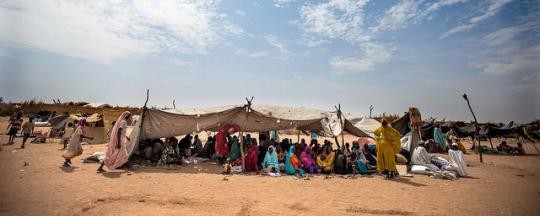Sudan Community Compensation Program Proposal | September 1, 2015
http://sudancommunitycompensation.org/
* Executive Summary *
On May 1, 2015, BNP Paribas S.A. (BNPP), was sentenced to pay $8.9736 billion for violations of U.S. sanctions, mostly with regard to Sudan. Of this $8.9736 billion penalty, the Department of Justice published notice that $3.8336 was available for compensation to people who were “directly and proximately harmed by BNPP’s sanctions violations. ”
This proposal focuses on the Sudan component, expected to be between $2.8 billion and $3.48 billion, and asks that this money be placed into trust for the Sudanese communities who were harmed as a result of BNPP’s illegal behavior in the form of a “Sudan Community Compensation Program.” This program includes communities that were harmed, not only in Sudan, but also in present-day South Sudan, which until its independence in 2011 was part of Sudan.
BNPP’s settlement agreement with the Department of Justice noted BNPP’s illegal behavior in violation of U.S.-imposed sanctions on Sudan in the period 2002 through December 2008. In the one-year period, alone—July 2006 through June 2007—BNPP processed $6.4 billion in illegal transactions involving Sudan. In addition to illegal transactions, BNPP provided illegal letters of credit for the Government of Sudan and held most of the Government of Sudan’s foreign currency assets. As a result, BNPP provided substantial financial support for Government of Sudan’s war against its people.
BNPP also helped Sudan finance its oil industry, which provided Sudan’s primary export and source of government revenue. In addition, the letters of credit and foreign exchange substantially and inevitably helped as the Government of Sudan ramped up its military expenditures during this period. Sudan’s large military purchases during this period included such deadly equipment as MiG-29’s and Mi-24 helicopter gunships, which the Government of Sudan used in its various wars against its own people in the period 2002 through 2008, as well as subsequently. These weapons have historically had long use in Sudan’s military, and the Government of Sudan continues to employ these weapons in its attacks against its people. Therefore, it is appropriate and reasonable to consider the people harmed by BNPP’s actions to include the period 2002 through the present.
A Sukhoi-25 with its fearsome array of weaponry, used primarily against civilian targets and purchased with the help of criminal financial activity by BNP Paribas using the U.S. financial system
The primary use of the Sudan Community Compensation Program should be to address the most critical emergency humanitarian aid shortfalls for Sudanese refugees and Internally Displaced Persons whose displacement was a result of attacks by the Government of Sudan and/or its militia proxies. The compensation program should provide assistance as quickly as possible in the current year and also address the most critical shortfalls in the following years.
The Khartoum regime has dramatically expanded its use of militia forces in Darfur in recent years, now known as the Rapid Response Forces, a replacement for the Janjaweed of the early years of the genocide.
The secondary use of the Sudan Community Compensation Program should be for reconstruction and redevelopment projects for the affected Sudanese communities. That part of the program, however, must be deferred to some future date when the current oppressive Government of Sudan has been removed from power.
Some of the essential operating principles of the Sudan Community Compensation Program:
- The compensation program should be a community-based reparations process, rather than a process of individuals submitting individual claims. Responding to community needs is particularly appropriate because the crimes that the illegal BNPP actions helped facilitate were genocide and crimes against humanity targeting classes/tribes of Sudanese.
- The primary focus of the compensation program should address the most critical emergency humanitarian aid shortfalls, such as food, water and acute healthcare, for all existing Sudanese refugees and IDPs, totaling well over 4 million people.
- The Government of Sudan should get none of the money that is disbursed.
- Administration of the Sudan-related reparations process should be separate from any other possible process for Iran and Cuba.
- The compensation program should be structured so that it augments, rather than replaces humanitarian assistance funding from the U.S., Europe, UN, and others.
Because the humanitarian needs for Sudanese refugees and IDPs are so enormous and urgent, it is important that the Department of Justice move as expeditiously as possible to initiate the Sudan Community Compensation Program so that funds can begin to flow to existing aid agencies capable of helping with the most critical emergency aid requirements.
Full Proposal document at:
BNP restitution proposal for Sudan
Some of the more than 3 million Darfuris who have been internally displaced or turned into refugees in eastern Chad. Humanitarian needs among these people are extreme, and many are dying now for lack of funding going to UN agencies and international nongovernmental relief organizations—funding that could be provided by the restitution monies set aside by the U.S. Department of Justice. Altogether, criminal activity by the French bank PNB Paribas resulted forfeiture of $9 billion, $3.8 billion for restitution—and the vast majority of that for Sudan. How can the Department of Justice justify withholding monies needed for the most urgent humanitarian relief efforts?
Sudan Human Rights Network: join their petition to the Department of Justice asking for BNPP settlement money to fund essential humanitarian efforts in Sudan:


